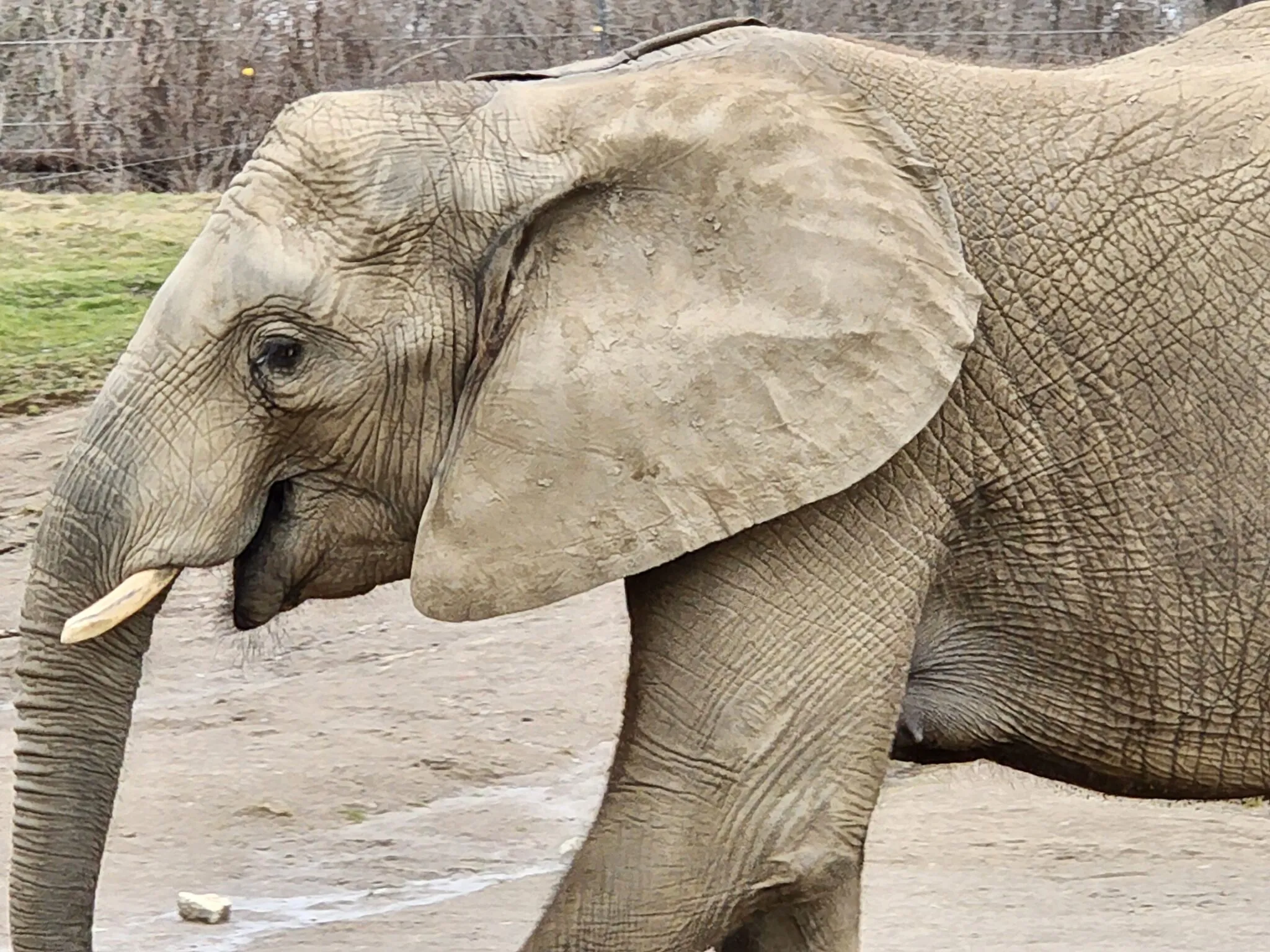-
Menu
- Plan Your Visit
- Meet The Animals
- Check Out Events
- Memberships
- About The Zoo
- Support the Zoo
- Conservation
- Education
- Groups & Private Events
- Zoo News
- Contact
- Zoo Store
- Indianapolis Prize
- Global Center for Species Survival
- Schedule
- Donate
- Membership
- Tickets

- Plan Your Visit
- Meet The Animals
- Check Out Events
- Memberships
- About The Zoo
- Support the Zoo
- Conservation
- Education
- Groups & Private Events
- Zoo News
- Contact
- Zoo Store
- Indianapolis Prize
- Global Center for Species Survival

Zoo Announces Elephant Pregnancy
African Elephant Zahara To Welcome Newest Addition in October
The Indianapolis Zoo is happy to announce that 16-year-old African elephant Zahara is pregnant. She is already 15-months along in her 22-month pregnancy. Zahara’s calf is due in early October. The calf will be the first elephant in the world (African or Asian) to be born through artificial insemination to a mother who was also born through the same procedure.
The Indianapolis Zoo is well-known throughout the world for its successful efforts with African elephant reproduction. The first and second African elephants in the world to be conceived and successfully born through artificial insemination were at the Zoo in 2000. Multi-generational herds are essential to educate Zoo visitors about elephant behavior and their survival in the wild.
“African elephants face a number of threats to their survival. Key among these is habitat loss leading to conflict with humans. Poaching for Ivory and other body parts remains a very serious issue. These pressures threaten the long-term survival of elephants in the wild,” said Dr. Rob Shumaker, President & CEO of the Indianapolis Zoo. “We want to inspire every Zoo visitor to actively support a future where these magnificent animals thrive.”
The calf will complete a third generation in the herd at the Zoo. Zahara’s mother is Ivory, who is 41 years old. Zahara is the youngest elephant in the Zoo’s herd of five. Bringing a new life into the world always comes with risk, but Zahara has her animal care team including keepers and veterinary staff monitoring her weight, diet, exercise and blood values. The zoo’s veterinary team conducts regular ultrasound examinations to monitor the health and development of the fetus.
“We are pleased that Zahara’s pregnancy appears to be progressing normally as the calf continues to grow at a healthy rate with a consistent strong heartbeat on ultrasound,” said Dr. Melissa Fayette, Indianapolis Zoo Associate Veterinarian.
By visiting zoos accredited by the Association of Zoos and Aquariums, guests are contributing to the fight against poaching and helping to save elephants. Visitors help make possible the field conservation, research, habitat restoration, reduction of human-elephant conflicts and community-based initiatives necessary to protect wild populations. You can learn more about our African elephants here.
